|
The Olympics
measure the organizational abilities of a country while the Paralympics
indicate its degree of civility.

Lapidary, simplistic and certainly debatable assertions, but how can we deny
that throughout the years this has become the shared approach
of a common thinking accepted everywhere? Let us try to analyze China through its
Paralympics, reminding ourselves that this event, from Rome 1960, happens a
few days after the best-known Olympics and that it involves athletes with
disabilities using the same sporting facilities.
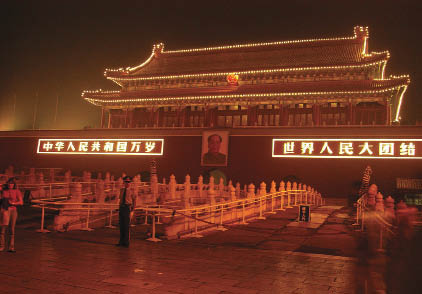
To compare
Beijing 2008 with past editions, let us use concrete and measurable
parameters, common to all Paralympics manifestations: the volunteers and the media.
These are not simple references. Volunteers are the interface, the clean and
sincere face of a country that has decided to invest in the perception of
others about its own level of civility, real or presumed.
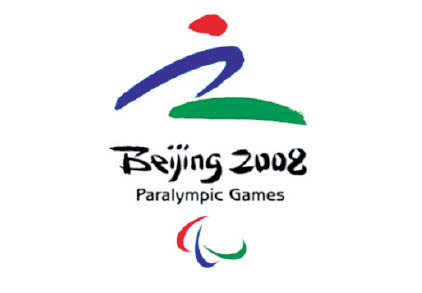
During the
Olympics, the volunteers are those that show the organizational abilities of
a country:
if no time is invested in them, the entire structure
cannot hold up and will show signs of strain. At the Paralympics, volunteers are dealing
with one more factor: the interest that demonstrates
the host country towards persons with disabilities. No organization can any
longer afford to have inadequate, unprepared and disorganized staff. The
international public opinion would not accept this lack of attention. Volunteers are young people aged between 20 and 30 years. You meet them in the sporting
facilities' corridors, at the entrance of media centres and, recognizable by
their uniform, all around the city. These young people are assessed by
spectators and media people.
Almost always students, they offer their time for free or low wages, and have
the huge responsibility to represent the
pride and enthusiasm of their land. With different tools, the media information plays the same
role. But even before being the window of the host country, national
newspapers and television turn to their own people and they do so with a lot
of anticipation in regards to the symbolic ceremony of the Olympic flame. The
result of their work is measured from the number and the quality of the
spectators that were in the stadiums to see the athletes with disabilities.
I was in Beijing to attend the Paralympics, but not the Olympics. On that
occasion, I was not (and I am generally not) the “technical” journalist sent to cover only the competitions and the results of our athletes.
I have colleagues who do that, in this case from Rai Sports, and they are
much more prepared than me. Therefore, I was able to go elsewhere then the
sporting facilities and the Paralympics’ site.
What is there to say then about the Chinese volunteers? Personally, I can
only speak positively about them. Friendly, smiling, discreet people.
Probably typical of the Chinese, I also found them to be flexible and
reasonable. Since 1988, the Paralympics use the same sporting installations
as the Olympics, with areas able to accommodate many thousands of people.
The same areas, with the disabled athletes, become really awkward for
television crews needing to run with cameras, tripods and other heavy
equipment from one area to the other with often quite a bit of distance
in-between.
|
Before
Beijing 2008, I went to Athens 2004. It's true that it was probably the most
major event closest to September 11, 2001, but I still remember like a
nightmare the Greek volunteers who were inflexible and made us cross hundreds
of meters passages that, behind them, had a distance of 5-6 meters. Matters
of security, certainly. But around us was a
semi-desert, not the masses of spectators attending the Olympics. With the Chinese
volunteers, your media pin, a joke (with gestures more than with words,
because to find someone who spoke English was indeed difficult) and they
would let you pass. It was a simple question of reasonableness.
This anecdote summarizes the opinion that the media people had of Chinese
volunteers. A few days before the closing ceremony of the Paralympics, Great
Britain, next host country, presented in a press conference London 2012. To
Sebastian Coe, the mythic Olympic record holder of the 80s now organizer of
the event, a British journalist asks: but, will we find in England volunteers
as hospitable and amiable? Everyone laughed at this except Sebastian Coe.
The information media in China: I learned, like everyone else who followed
the Olympics on television last August, how the Asian continent managed the
issue relating to Tibet, the limited freedom imposed on the journalists, etc.
I will not talk about it because it is not the subject here and also because
I was not there. For the Paralympics, I have however witnessed the
absolute absence of this atmosphere. Even when Iran, in a polemic with the US on a change of schedule,
renounced playing wheelchair basketball, no one in the media headquarters
gave this episode a political interpretation as it was done in the Italian
newspapers.
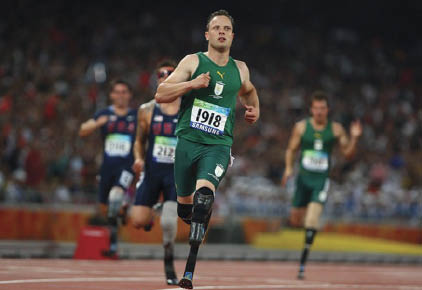
Personally,
I was never prohibited as a journalist to do anything, whether strolling in
the city or in the facilities.
In China, there is no private television and there are not satellite dishes
on the roof of the homes of people. There is only one national
public television, the
CCTV which has 18 channels and various regional stations, all public. 28
hours of daily television on 2 channels of the CCTV were dedicated to the
Paralympics.
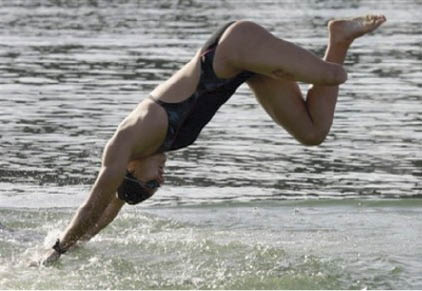
For the
Olympics there were 5 full-time stations. For Rai, the Beijing Paralympics were the most covered in history: 5 hours daily, on RaiSportPiù (satellite)
and on Raidue. Still too little. To inform and not to excuse the agency I
work for, Rai has not (inexplicably, I myself realized surfing on the site
while I was in China) publicized the nice media coverage on its site, which
transmitted the 9 channels in direct 24 hours a day of all the competitions
where there were cameras. The director of sports services told me that the
share of the Olympics was 35% and 5% for the Paralympics. It is not however
little. One Chinese over 20 (almost 5 times the number of people in Italy) has seen them.
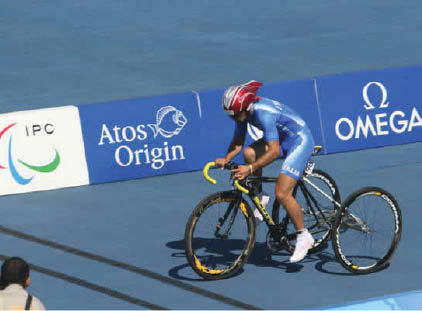
One of the
biggest problems since the Olympics and Paralympics take place in the same
facilities is to fill the terraces with spectators.
The Chinese are so many in absolute numbers, in Beijing I never saw empty
stands whether it was for the spectacular disciplines like wheelchair
basketball or tennis or the more static ping pong or bow shooting.
And it was not a question of comparison: it cost from three to eight Euros to
get in.
Come to
mind two possible explanations, one being more plausible: or it was imposed
by the regime or the media did a good job.
|
Italy won 18 medals. In Athens
2004, we won 19, in Sydney 2000, 27, and in Atlanta 1996, 45. The numbers
show it is only getting worse. But no one would have bet on these 18 medals
in Beijing. Before the
beginning of the event, the President of the Italian Paralympics Committee,
Luca Pancalli, said with optimism that we would win 15. Excluding swimming,
the average age is getting higher and, annoying problem, the athletes prepare
themselves during what is left of the time after work and family. Meanwhile,
the competitions with other countries are getting fiercer.
Oscar Pistorius, with his super-prostheses, has the merit
to have broken the wall of non-communication between the abled-bodied
athletes and the disabled ones. Now, more and more, those who have the
numbers can go here and there, try the more important races and if it does
not go well, they qualify and win in the smaller ones, 75 thousand Euros for
the gold, 40
thousand for the silver and 30 thousand for the bronze. Some
athletes (of course it is not the case of Pistorius) have in fact a
disability that does not affect the discipline in which they compete, and in
some cases they compete in both events. It's the case of the swimmer, also
South African like Oscar, Natalie Du Toit, who made it fourth in Open Water
Swimming at the Olympics and winner of 5 gold medals in the Paralympics. The most watched Paralympics
sports are the most spectacular ones, just like in the Olympics. It was
discussed a few years ago: could the games for the disabled athletes become
the B series of the same Olympic flame. And that each discipline, since the
world is world, chooses the best and excludes the less skilful. To the
disadvantage of the more disabled among the disabled people. And the bowls
competition will no longer be enough to demonstrate that organizers have not
forgotten the disabled-disabled people, those less competitive and
spectacular. After
the unbeatable China (211 medals) in Beijing 2008, Great Britain
came in second (102), surprisingly before the superpower USA (99). In Athens,
in 2004, for the first time in history, China won, surprisingly. But there is nothing surprising. In both
cases, the surprises came from the team of the organizing state of the
following Paralympics. When will it be the next turn for Italy?
China had to present a new image to the world and did so for two months. In the meantime, they say that the
spotlights now out, everything will be back
like before (as it is now). I am convinced that it is not the case!
Certainly, China is not the perfect country shown during the event, but
something, like the small seed of a future plant, must have made its way in
the habits and in the mind of Chinese people. A seed that needs to be
watered, of course, but that cannot be easily taken away or left dying. A
seed that penetrated, maybe, even the thousands of pictures that each
Westerner left in their camera. Each one of us on many occasions was asked by
a Chinese to take a picture together. Together with a perfect stranger. To a
young man who spoke English, I once asked the reason for this request. We
have the desire to get to know someone different than us, to come into
contact with your culture, was his answer. One day, I went with the crew to a
Beijing hospital to meet the 12 year-old girl, the protagonist of the opening
ceremony, who lost a leg in the earthquake that took place the previous May
in China. Seeing the camera, a lady standing next to a man in the hospital's
wheelchair, came
close to us and told our interpreter that they came from a very distant
countryside region. Files in hand, she told us that her husband
(the man in the wheelchair) had not been doing well for a long time and that
the doctors had started taking care of him only now because the Olympics were
taking place. I don't know if, now that we don't talk about the Olympics
anymore, the man is still being cared for at the hospital. I know though that without this
exceptional world window, that man would never have gone to the hospital, and
his family, from a far away and poor region in the country, would have accepted the man's disease as
something inevitable.
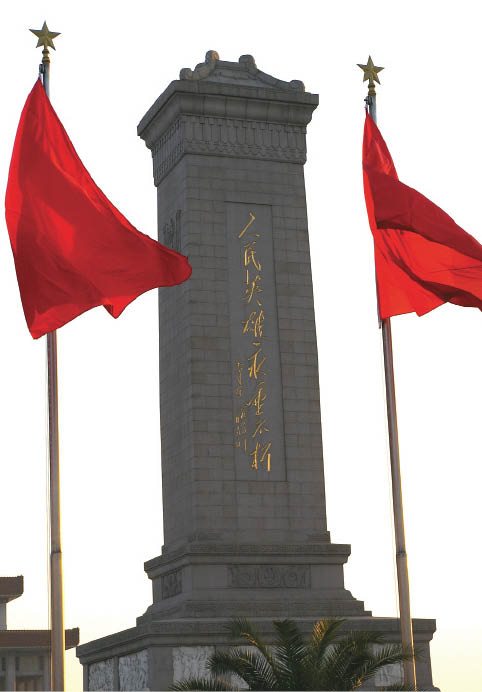
|






